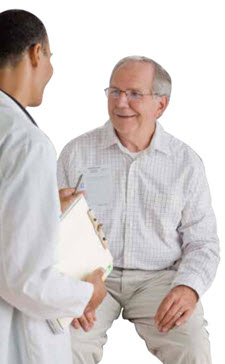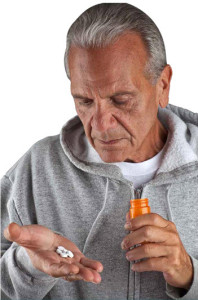Top 7 Best Testosterone Boosting Foods
The proper, healthy Man Diet is absolutely key to not only good, sustainable health and longevity, but also to maintaining a viably productive and powerful testosterone level. And we say Man, because the nutritional facts are that we males require a distinctly differing amount of similar foods than the fairer sex, while also requiring a differing variety of the best testosterone boosting foods for our optimal testosterone health. Top 7 Best Testosterone Boosting FoodsOf course our Top 7 Superfoods and testosterone boosting foods are healthy and nutritious for everyone, but men in particular should pay special attention. Introduce these foods to your diet regimen, and you’ll feel the results right away.Garlic
This Old School herb and Paleo-Superfood is perhaps one of the healthiest overall ingredients you can add to any diet regimen. Excellent as an immune system booster, garlic is an all-natural additive that has been shown to boost testosterone levels. In addition to its many health benefits, garlic is just plain delicious!Pills and powders are OK, but eating real garlic is best.Coconuts
A key source of healthy monounsaturated fats, the delicious coconut will help boost your testosterone levels without packing on the blubber. In addition, you need not worry over any negative cardiovascular effects from this hard-shelled, hairy nutrition monster. In smoothies, with desserts, in milks, coconuts are a reliable testosterone booster.And don’t forget coconut oil as a cooking additive!Avocados
A very simple equation is less cholesterol equals more testosterone, and the awesome avocado is a full of cholesterol-busting good fats that will allow the testosterone to grow, as well keep your arteries in good working order.Grapes
Grape skins are loaded with all-important resveratrol (a plant-based polyphenol), which plays a crucial role in overall sperm health and motility with a corresponding increase in Testosterone levels. In addition, emerging research is finding that resveratrol, taken in large amounts, just may be a longevity super-additive. So eat grapes and live longer and healthier.Red Meat
A very simple equation is less cholesterol equals more testosterone, and the awesome avocado is a full of cholesterol-busting good fats that will allow the testosterone to grow, as well keep your arteries in good working order.Honey
An excellent sugar substitute, honey is loaded with nitric oxide and boron, an important testosterone boosting mineral. Nitric Oxide is the key ingredient to many ED drugs as it dilates the blood vessels and promotes better blood flow for an erection.Eggs
As we previously mentioned, the Omega-3 rich egg is also a protein powerhouse and a sure testosterone firecracker!Here is one extra one that doesn’t boost testosterone but helps you manage your Estrogen levels!!Cabbage is rich in indole-3-carbinol, a metabolic chemical that effectively flushes any floating estrogen from your system and as a result, lets your testosterone run wild. It doesn’t matter if your tastes run to kimchi or corned beef and cabbage. Just get that leafy goodness in you!Contact Us
If you’re ready to increase your testosterone levels, contact us today to schedule a free consultation.Top 7 Best Testosterone Boosting Foods
Hormone Therapeutics April 18th, 2023
Posted In: Health & Wellness, Testosterone Therapy
Tags: arteries, avocados, coconuts, diet, ED, eggs, erection, garlic, grapes, honey, indole-3-carbinol, lean, monounsaturated fat, muscle, natural testosterone therapy, nitric oxide, Omega-3, paleo, polyphenol, red meat, resveratrol, superfoods, testosterone, testosterone boosting foods, testosterone diet, testosterone foods
How does Testosterone Affect Sexual Health?
Can testosterone improve sexual health?
Many factors fuel the sexual health of men as well as their sexual performance, ability to perform and changes in their ability to function as they once could. Low testosterone plays a significant factor in all of these and treating Low T can improve interest in sex, sexual function and sexual performance.
The Effects of Low T on Sexual Health
While we do understand that testosterone production comes from a healthy HPA Axis, or communication between your Hypothalamus, Pituitary Glands, Adrenals and Testicles, science still does not understand exactly how testosterone improves sexual health or performance. As you probably noticed in High School, College or amongst your friends, there is no normal level of sexual interest amongst men or women.
Like your testosterone levels, it peaks around 19 and usually slowly declines for the rest of your life. Each person takes a different path, however, and declining sexual interest is typically tied to declining testosterone levels. These levels can follow a steady decline, or can be accelerated by health issues, stress, poor sleep and even by keeping sexually active. Many men can lose sexual interest at normal testosterone levels or maintain sexual health even at low testosterone levels but as testosterone levels get depleted it will universally effect sexual interest and performance.
One study of Men in the NE of the US showed 11% of men had a lack of sex drive. The researchers also found 28% of men with low testosterone levels had a low libido which means that men with low testosterone levels were 256% more likely to have low sex drive or low libido. The average age of the study participants was 47.
Low Testosterone and Erectile Dysfunction

Erectile Dysfunction, or ED, can be caused by many health problems including low testosterone, atherosclerosis (hardening of the arteries), diabetes, high blood pressure and high cholesterol. Those last three items all cause hardening of the arteries. If they are damaged, the penis has difficulty dilating and bringing sufficient blood flow required for an erection. Testosterone therapy can lead to increased libido and interaction and connection between the brain and penis.
Viagra is an example of an oral PDE5 inhibitors that encourage an increase in nitric oxide which dilates the blood vessels and encourages more blood flow to the penis. Three potent selective PDE5 inhibitors (sildenafil (Viagra; Pfizer), tadalafil (Cialis; Lilly), and vardenafil (Levitra; Bayer)) are currently available. Testosterone therapy will often increase the libido and sexual function to erase Erectile Dysfunction, but often our physicians will prescribe a combination with PDE5 inhibitors as well.
Studies are showing that men with classic hypogonadism, or low testosterone, have a reduced response to PDE5 inhibitors and see a significant response improvement with Testosterone Therapy. For patients who fail to see ED improvement following TRT and PDE5 inhibitors we can prescribe and test the direct injectable Trimix.
The Connection of Testosterone Levels and Sexual Health
 While this sounds like a juvenile sex joke, we are now seeing that lowered testosterone levels lead to a decreased sex life, but that a decreased sex life also can lower ones testosterone levels in a study at the University of Sydney in Australia.
While this sounds like a juvenile sex joke, we are now seeing that lowered testosterone levels lead to a decreased sex life, but that a decreased sex life also can lower ones testosterone levels in a study at the University of Sydney in Australia.
Researchers followed 1,700 men over the age of 70. The study asked questions and measured a number of things. The study tracked the ability to keep and maintain an erection. It measured the frequency that sexual activity led to ejaculation (through masturbation or sexual intercourse). The study also tracked libido and sexual health versus earlier times in their lives.
During the study, all of the men had blood tests regularly taken and the following tests measured: Total Testosterone, Free Testosterone, Estrogen, SHGB and some other hormones.
Researchers discovered a 10% reduction in testosterone levels led to a noticeable decrease in sexual activity but no change in the number of erections. Another study showed that testosterone levels increased on night after sexual activity without any increase on nights where there was no sexual activity. Physicians are concerned that a lack of sexual activity can accelerate low testosterone.
 A further study showed that men taking Cialis had higher testosterone levels than men taking Viagra. Both drugs are PDE5 inhibitors to boost nitric oxide and blood flow to the penis. Cialis, however, last 36 hours for most people rather than 6-8 hours. Cialis users typically have more intercourse over this extended time period.
A further study showed that men taking Cialis had higher testosterone levels than men taking Viagra. Both drugs are PDE5 inhibitors to boost nitric oxide and blood flow to the penis. Cialis, however, last 36 hours for most people rather than 6-8 hours. Cialis users typically have more intercourse over this extended time period.
The researchers concluded that “as it is unlikely that the two drugs have a different direct effect on the pituitary-testis axis, this effect is probably due to the higher frequency of full sexual intercourse.”
A Chinese study observed a group of men that abstained from ejaculation for one week and had their testosterone levels tested each day. Research showed that abstaining for 6 days had no effect on testosterone levels, however, on the seventh day the testosterone levels surged to 145.7% of the baseline then plummeted on the 8th day.
The researchers believe the testosterone surge was the result of a negative feedback suppression of Luteinizing hormone (LH secretion) which is essential for testosterone production.
Hormone Therapeutics aims to help people looking to improve and optimize their health through natural means or through the guidance of our physicians.
Don’t miss out our free weekly tips and news on Low T, hormone balancing, healthy living, nutrition and a lot more.
Want more?

Sign up today and Get our ebook, ‘Naturally Increase Your Testosterone Levels’ absolutely FREE.
How does Testosterone Affect Sexual Health?
Saleamp Design November 15th, 2016
Posted In: Low T Info
Tags: atherosclerosis, Bayer, blood flow, boner, Cialis, diabetes, dilates, ED, erectile dysfunction, erection, high blood pressure, high cholesterol, hypogonadism, inhibitors, intercourse, Levitra, LH, LH secretion, libido, Lilly, Lutenizing hormone, nitric oxide, PDE5, PDE5 inhibitors, penis, Pfizer, pituitary, sex drive, sexual health, sexual performance, sildenafil, tadalafil, testes, testicles, testosterone level, testosterone therapy, trimix, TRT, vardenafil, Viagra


